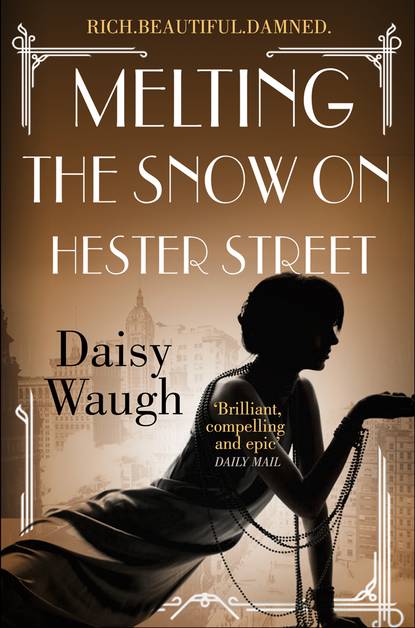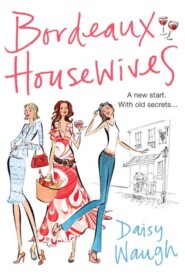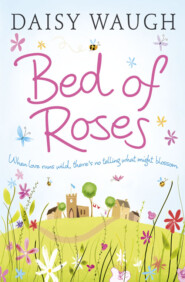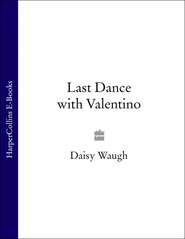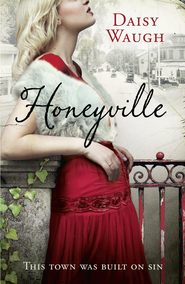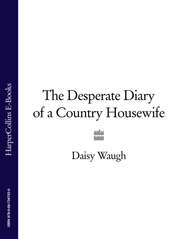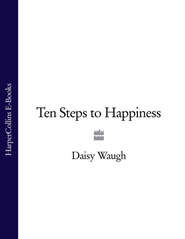По всем вопросам обращайтесь на: info@litportal.ru
(©) 2003-2024.
✖
Melting the Snow on Hester Street
Настройки чтения
Размер шрифта
Высота строк
Поля
‘No more dullness!’ declared Max, ‘or Gloria Swanson might go home in a sulk. And none of us wants that! It’s a party, for God’s sakes. Added to which – except for Charlie – we all made a fortune today!’
‘God Bless America!’ cried Douglas Fairbanks.
Max ignored him. ‘Let’s dance!’ he commanded. And for a brief, uplifting moment the brilliant director, handsome as the devil himself, and his dazzling movie-star wife, were united again; and they were happy. He squeezed her hand and led her across their nautically themed, Italianate terrace, through the sweet-smelling hallway decked in blue and white lilies, onto the centre of the dance floor … And though they hardly noticed it, alone in their fragile cocoon, the cream of America’s fame and beauty followed close behind …
Nobody talked about Investment Trusts for the rest of the evening. And they danced until five in the morning.
4
Too often, in a soured marriage, such uplifting moments do more harm than good, and only serve to make the thud of the landing more painful.
Max was gone by the time the maid came in with Eleanor’s tea the next day. It arrived on a tray at eleven thirty, with the usual glass of freshly squeezed lemon juice, unsweetened, the usual small pile of pre-selected mail; and a small, square, leather jewel box. She took a gulp of the juice. Shuddered. And opened the box.
Every year, on the morning after the party, he gave her something precious. This – a large ruby pendant in the shape of a heart – was larger and more precious than last year’s jewel; she imagined because of their recent successes on the stock market. And beautiful, too. No doubt about that. Max had excellent taste. She shuddered once again as the last of the juice went down, laid the ruby heart back in its box, set it aside. She could hardly bring herself to touch it. Why a heart, of all things? A heart – how absurd! She wondered – what did he give to Blanche? A ruby pendant in the shape of a goddamn putz?
She laughed to herself, though she didn’t find it funny, and looked about for the accompanying envelope. There was always an envelope. She wished she could ignore it, simply not open it, because what could he say that would ever make it all right again? What could he say that wouldn’t hurt?
Darling,
Another wonderful night!
Enjoy your morning. You certainly earned it.
Your ever-loving,
Max
She put the letter down. Ever-loving. Indeed. Had he forgotten what it was all for? This night of nights? He never mentioned it. Never said a word … Gosh, her head was throbbing so – she must have drunk more than she realized.
She could hear the people downstairs, still clearing away the residue of the party. If she stayed up here long enough, as she fully intended, there’d be no evidence of the party at all by the time she went down there. The bunting, the flowers – the eighteen candelabra, the silver-threaded linen table cloth, the banqueting table, too – all of it borrowed, all of it gone. And she could forget about it until next year came round again. If it ever did.
She wallowed, briefly, in the pleasure of not having to get out of bed. Her last picture only wrapped at the weekend – so she’d enjoyed a few days to herself. And she knew well to treasure them. In fact … she glanced at the post on her tray and saw, with a familiar twist of anxiety, a familiar-looking package tucked away at the bottom of the pile.
Already, then. That was too bad.
There would be a one-page synopsis at the top, first of the plot, and then of her character’s part in it. And through the following eighty-odd pages of film script, her designated role in whatever movie had been chosen for her would have been underlined. And there it would be. No message, no discussion. Just a whole lot of new lines to be learned. And a reminder to Eleanor that, though she may be a star in Main Street America, not to mention in the hearts of the odd stray, crazy fan, at Lionsfiel Pictures she was only an employee – a single, shiny cog in a very large, very shiny machine. It was how the system worked. She did as she was told. They paid her handsomely. Eleanor had learned long ago that you could never win against the might of the Studio.
And no matter what, no matter how good she was, one day, it would surely happen, because one day it happened to them all – and to the women sooner than the men. One fine morning Eleanor would open up that familiar-looking package, delivered to her by her maid on her sunny breakfast tray, and discover that her moment in the limelight was passed. The screenplay’s leading role would not be underlined for her, having been underlined for somebody else – somebody younger, fresher, more beautiful, more alluring, better … It was a morning every contract movie star learned to dread.
Eleanor was – how old? She’d lied about it so often, she honestly didn’t know any more. What did it matter? She still looked young. They could make her look young: with the best flat lighting, she didn’t look a day over twenty-five.
There was absolutely nothing to worry about.
Even so, she chose not to open the package. Not just yet. Instead she leaned back against her lovely plumped-up pillows, on her magnificent, giant bed, in her beautiful sun-filled bedroom; sipped the tea which her maid had delivered, and mulled over the events of the previous evening.
Max was quite right about the party’s success. Except for the unpleasant interlude with Dougie – Dougie, of all people! – and then the dreadful moment with the candelabra, it had been a splendid night: better than previous years, for all sorts of reasons, not least the unexpected presence of Marion Davies. Which was quite a coup, whatever way you looked at it.
Not just a coup: a pleasure.
Marion had pulled Eleanor aside after dinner, pulled her right off the dance floor, thrust a cocktail glass into her hand, clinked their two glasses together, winked at her. And downed her drink in one. ‘That was a lovely thing you did b-back then,’ she said, wiping her mouth with the back of her hand.
‘It was?’ Eleanor was confused. She hadn’t done anything. ‘W-what you said to Dougie …’
‘But I didn’t! I didn’t say anything!’
‘I mean to say, the way you looked at him. The way you refused to laugh.’
‘Oh! But I wanted to do so much more! Only I wasn’t sure if you had even heard him, and then I thought it was better not to fuss – I am so sorry, Marion. I can’t apologize enough …’
‘You m-made him feel like a sap.’
‘You think so?’
‘Ha!’
There was a long pause, a peculiar pause, as if Marion were on the point of saying something else, something terribly important. But then, at the last second, she seemed to balk at it. ‘… I just wanted to tell you, th-thank you,’ she said instead. ‘That’s all. And I was thinking. Well, I was thinking it anyway. But I wanted to ask you up to San Simeon. Would you come to San Simeon if I asked?’
‘Of course!’ Eleanor had replied. ‘We would love that, Marion.’
‘Next week or something,’ she mumbled. ‘Real soon. I’ll fix it up for the week after next. Are you free?’
‘Well …’ Eleanor laughed. ‘Absolutely. We’re free. We’ve both just wrapped.’
‘I know you just wrapped.’ Marion winked at her. ‘It’s too perfect, isn’t it? Next Monday then. How about it? I’ll get a good crowd up, I promise. And I’ll send you all the stuff you need. Tickets and so on … Don’t worry about any of it.’
‘Next Monday … Max will be delighted.’ And then, suddenly, with the smallest hiccup, Marion had lurched forward and enfolded Eleanor in the tightest, warmest embrace. It lasted several seconds. She rested her head on Eleanor’s shoulder, squeezed her, clung to her and then, just as abruptly, released her and without looking at Eleanor again, quickly swung away.
It was, Eleanor decided, looking back, a most peculiar moment and, because of the warmth, one of the high points of her evening. Marion had mentioned the invitation to San Simeon again as she was leaving. She would send a car round with the train tickets later on in the week. So maybe, Eleanor thought – maybe she actually meant it?
Other than that, Marion had kept herself perfectly busy, of course: smooched half the night with Charlie Chaplin, until Charlie spotted the little Von Stroheim protégée, barely in her teens, poor little thing …
She’d danced with Gary Cooper for a while, but he was in the middle of a movie and had slipped away early; staggered across the garden in the moonlight, and taken a back route home through the Beecham grounds to avoid fans at his own gateway. After that, she’d latched onto John Gilbert. It would have been perfect – except of course then La Garbo decided to kick up the usual stink, which was pretty rich, reflected Eleanor, considering Greta hadn’t even arrived with John Gilbert that night. Considering Greta had actually spent most of the night in a hot, dark corner with Miss Lilyan Tashman … Eleanor smiled to herself. Holy cow, if her public could have seen her! If Irving could have seen her! Too bad he’d already left … The girl only had a handful of movies behind her – and not even a talkie among them, yet Greta Garbo acted like the Queen of Sheba.
Eleanor glanced again at the script package on her breakfast tray. Greta was ten years younger than she was, that was the truth. And beautiful. Just too damn beautiful. Nobody could compete. Nobody stood a goddamn chance …
She wouldn’t open it. Not yet.
Her mind turned, before she could stop it, to Little Miss Blanche Williams, chief feature writer –
Much better to open the script.
There it still was, lying there. So what was stopping her? Mermaids had grossed over $1.3 million, for crying out loud.
Meanwhile Greta hadn’t even made the transition to talkies.
Over $1.3 million!
There’d been three other pictures since, of course, each one grossing less than the one before. And then came the last, the real turkey, disdained by viewers and reviewers both.





